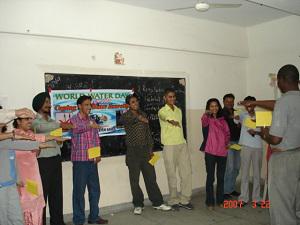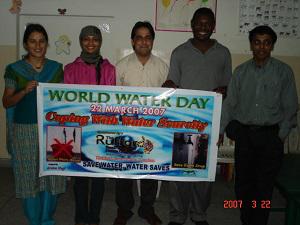Our ongoing conservation campaign will endeavour to link people to actions they can take to make a difference, reducing their impact on the diminishing wildlife resources of the north west Himalayan region.

World Water Day.
My RSG second project is a part of my ongoing nature conservation awareness campaign in the north-western Himalayan region particularly in the Himachal Himalayas that falls along the Shiwalik ranges of the Himalayas.

The nature's bounty in this part of the Himalayas is amazing, however, during the last one decade, the quality of its natural resources ( both forest and wildlife) has been showing a decreasing trend mainly due to increasing man-made activities, like expansion of crop lands at the cost of the loss of forest lands, increasing poaching of a variety of wild animals by the local people, developmental activities across the key habitat ranges.
It is most unfortunate that in the Shivalik mountain ranges of the north-western Himalayas, wild animals were constantly becoming victims of poaching by local people. In many areas the wild animals are gradually disappearing as the forest lands are being encroached upon by the local villagers for agricultural purpose. Even the situation was so grave that the forest lands have been completely turned to horticultural lands and that there was no sign of wildlife.
This unfortunate changing pattern of the Himalayan wildlife demand an urgent initiatives for the preservation and protection of the forests and wildlife. Most of the biodiversity-harmful activities in the Himalayan region are human induced resulting in the gradual loss of primary habitats of wild animals like Black Bears, Leopards, Snow Leopards, Musk Deers, and Monal pheasants. Unfortunately, most of the communities living in close association with the forests primarily are least concerned about the deteriorating condition of the natural environment. Because of their ignorance about the association of the nature with human lives, the local natural resources are depleting. What is felt to be most important is a need for an integrated approach of conservation education for the community.
The second RSG project will help us reach out to a larger target population groups in ways that help them understand the connections between nature and their daily lives. Our ongoing conservation campaign will endeavour to link people to actions they can take to make a difference. When people make choices that are consistent with their concern about the natural world and the future, they help to secure a better future for themselves, their communities and the environment.